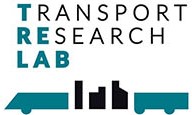Behavioural implications of non-linear effects on urban freight transport policies: The case of retailers and transport providers in Rome
Cities import goods and freight transport is essential. However, it also generates social costs. Ensuring efficient urban freight transport is important although difficult. Policy makers intervene by defining and implementing policy measures that try to foster market efficiency in an environmentally sustainable way. General-purpose policies have often backfired when insufficient attention was paid to specific stakeholders’ preferences. This paper investigates the impact the number of loading and unloading bays, the probability of finding them free and entrance fees have on retailers’ and transport providers’ utilities. Willingness to pay measures are used to test and quantify possible non-linear attribute variation effects. The main findings underline both the substantial difference in retailers’ and transport providers’ utility while evidencing the presence of non-negligible non-linear effects. Unfortunately the research results obtained are at odds with the recently introduced changes of the regulatory framework governing the Limited Traffic Zone in the city of Rome that is the case study considered in the paper.


